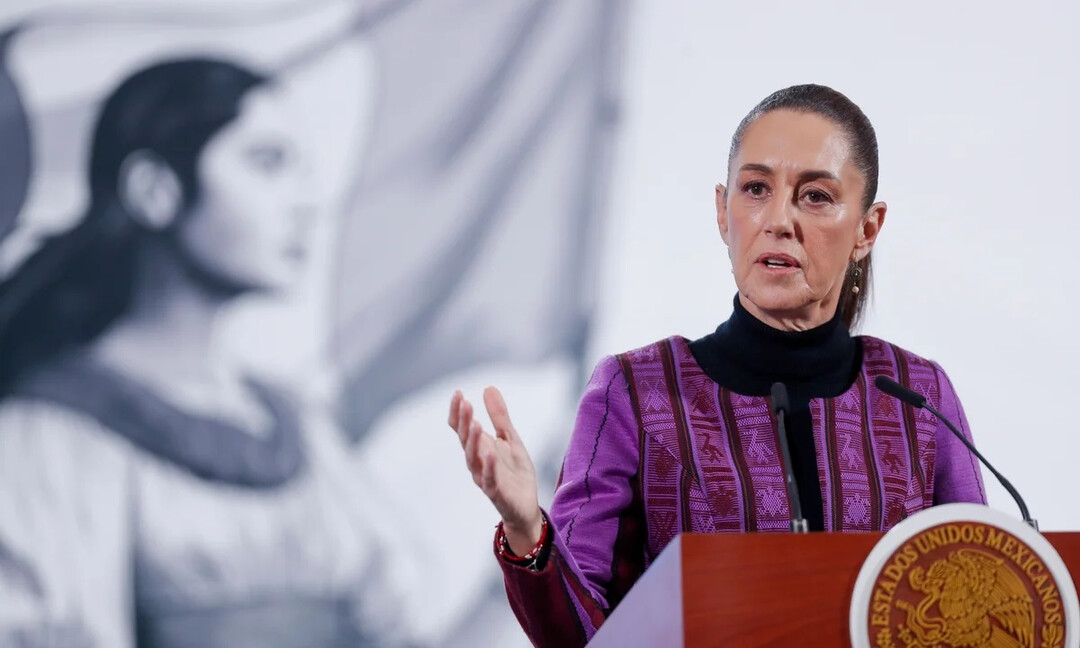
Mexico - In the face of escalating trade tensions and the recent announcement of significant US tariffs on automobile imports, Mexico's newly inaugurated President Claudia Sheinbaum Pardo has adopted a deliberate and arguably high-stakes strategy: maintaining a 'cool head' and prioritizing pragmatic diplomacy over immediate confrontation. This approach, as analyzed by CNN's Rafael Romo, marks a consistent tactic employed by Sheinbaum since the beginning of the current US administration and appears aimed at mitigating the potentially "catastrophic consequences" of tariffs on the Mexican economy.
Mexico stands as a crucial trade partner for the United States, particularly in the automotive sector. According to the latest data from the US Bureau of Economic Analysis, in 2024, Mexico exported a staggering $182.3 billion worth of automobiles and auto parts to its northern neighbor. President Trump's recent announcement of steep tariffs on all cars shipped to the US thus presents a significant threat to Mexico's manufacturing sector and overall economic health.
Despite the gravity of the situation, President Sheinbaum has publicly opted for a measured response. During a recent media briefing, she calmly stated, "We’ll have to wait and see what President Trump says, and from there, we’ll have to decide, one way or another, what decisions we’d make. We’ve been through this three times; this would be the third." This echoes her consistent stance of strategic patience.
This 'cool head' approach isn't new. Just days after President Trump's inauguration, when faced with controversial executive orders including the renaming of the Gulf of Mexico and the designation of Mexican cartels as terrorist organizations – a move that could have far-reaching implications for Mexican sovereignty – Sheinbaum urged calm. She employed the same tactic when the US threatened tariffs on steel and aluminum imports last month, reiterating her now-familiar mantra of maintaining composure.
This strategy starkly contrasts with the more vocal and immediate reactions from some other US allies, most notably Canada. While Canadian Prime Minister Mark Carney publicly warned that the "old US-Canada relationship is 'over'" in response to earlier tariff threats, Mexico has deliberately avoided escalating tensions through public rhetoric.
Analysts like Oscar Ocampo from the Mexican Institute for Competitiveness in Mexico City view Sheinbaum's approach as a calculated and effective strategy. "This is something we must recognize about President Claudia Sheinbaum and her negotiating team. What they have achieved is important. Mexico did well not to show its cards prematurely," Ocampo told CNN. He further suggested that allowing room for negotiation before any retaliatory measures was the "right thing to do."
Adriana García, a financial analysis coordinator at the Mexico City think-tank "Mexico, ¿How Are We Doing So Far?," concurs. She highlights Mexico's success in maintaining dialogue with high-ranking US officials and avoiding highly publicized clashes, a contrast to Canada's more confrontational stance.
In response to the latest 25 percent tariff threat on automobiles and auto parts, President Sheinbaum has announced a "comprehensive response" scheduled for April 3rd. However, she has also indicated that her administration is actively working behind the scenes to negotiate exemptions or reductions in fees for specific Mexican-assembled vehicles and components.
Evidence of this behind-the-scenes diplomacy is the frequent travel of Mexican Economy Secretary Marcelo Ebrard to Washington. Ebrard has reportedly met with US Commerce Secretary Howard Lutnick six times, focusing on preventing the imposition of multiple tariffs on single automotive components as they cross the border during the assembly process – a principle already agreed upon by both nations.
Interestingly, President Sheinbaum's diplomatic efforts have even garnered a degree of recognition from President Trump himself. According to a recent New York Times report, Trump reportedly told Sheinbaum during a phone call last month, "You’re tough." This is notable given Trump's often critical public statements towards other world leaders. He has also publicly acknowledged the positive relationship and cooperation between the two countries on issues such as border security and fentanyl trafficking in posts on Truth Social, thanking President Sheinbaum for her "hard work and cooperation."
However, the ultimate success of Sheinbaum's 'cool head' strategy remains uncertain. The stakes are undeniably high for her presidency and the Mexican economy. As former Mexican Economy Secretary Ildefonso Guajardo, who was involved in the US-Mexico-Canada trade negotiations during the first Trump administration, warned CNN, broad new tariffs "would be a fundamental blow to the Mexican manufacturing sector that would cause us greater difficulties than we already have – with an economy with zero growth and the possibility of entering a recession."
President Sheinbaum's pragmatic and patient approach is a clear gamble. While it has seemingly allowed for continued dialogue and avoided immediate escalation, the true test will be whether this strategy can ultimately shield Mexico from the significant economic fallout threatened by the new US tariffs. The world awaits Mexico's "comprehensive response" next week, which will undoubtedly signal the next phase in this critical trade relationship.
[Copyright (c) Global Economic Times. All Rights Reserved.]



























